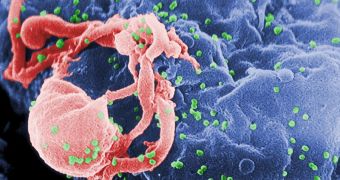A group of scientists has discovered a new class of anti-HIV drugs, which apparently are able to better deal with the effects the virus has in human bodies. The real breakthrough is that patients have not yet been exposed to this class of drugs, which means that their body hasn't yet developed an immunity to it. In other words, it could be possible even for those who are currently ill to have their conditions medicated without side effects. Actually, test results show bright perspectives, as doctors try to figure out ways to combine this new drug, called maraviroc, with other medications that have the ability to slow the progress of HIV into AIDS.
The acquired immune deficiency syndrome (AIDS) is a terrible disease that manifests itself by shutting down the body's natural defense mechanisms. It does that by binding with cells in the immune system and rendering them incapable of fighting other infections. As a result, those with AIDS become susceptible to contracting numerous diseases, which would otherwise not pass the powerful human immune system. Death usually occurs as a result of all major organs shutting down, due to fatigue from constantly fighting outside factors, like germs and bacteria.
Maraviroc was tested on 1,049 people in the U.S., Europe, Canada and Australia, by a team of international experts. Results have revealed that patients who received the new drug daily or twice a day have shown noticeable decrease in HIV-1 RNA quantities per cell, of up to 43-46 percent, as opposed to the placebo groups, that only showed 17 percent decrease rates. "Results highlight that maraviroc provides a valuable additional treatment option for a wide spectrum of treatment-experienced patients with R5 HIV-virus infection." said Dr. Gerd Fatkenheuer, professor of medicine at Universitatsklinik Koln, in Koln, Germany.
Currently, the Food and Drugs Administration (FDA) approves of 25 HIV medications, from 6 different classes, including maraviroc's HIV entry inhibitor's class. While doctors try to determine the best possible drug combinations for each patient, the virus inside replicates and mutates constantly, transmitting its signature to newer copies of itself. When mutations occur during replication, it often means that the virus will most likely become immune to the drug the patient was on at the time. Unfortunately, this means that the patient will most likely also develop an immunity to the entire class of drugs. That's why the importance of maraviroc is not to be underestimated. If used properly and successfully, it will help “HIV-infected people live longer, healthier lives," says Dr. Roy Gulick, director of the Cornell HIV Clinical Trials Unit of the Division of International Medicine and Infectious Diseases at the Weill Cornell Medical College in New York City.

 14 DAY TRIAL //
14 DAY TRIAL //